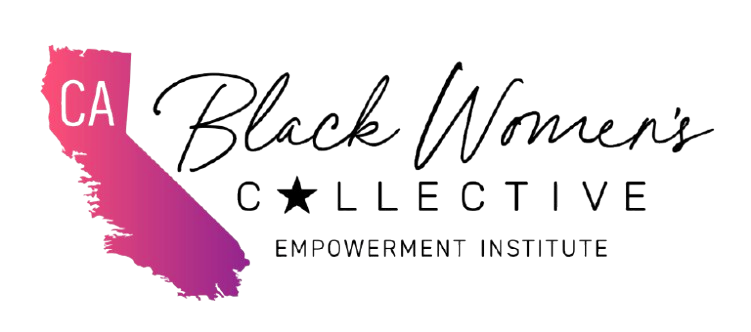Women in California deserve the opportunity to thrive and access the same economic opportunities as their male counterparts. When women thrive, their families and communities prosper. However, women in California continuously encounter structural barriers that prevent them from doing so. Black women and Black single mothers in California, in particular, regularly confront policies rooted in racism and sexism that block them from accessing state funded programs and even stifle their earnings.
According to the latest Women’s Well-Being Index, Black women’s average wages are lower than white and Asian women and significantly lower than white men’s. This wage gap is persistent and closing at such a slow rate that wage equality will not be achieved in the lifetime of the youngest Californians. Additionally, in California, 67% of Black households are headed by single mothers. Consequently, Black single mothers face the additional financial burden of being the sole earners of their household and working while supporting their families, resulting in an even larger wage gap. While there has been progress in closing the wage gap, the state can implement policies that do much more to address the barriers to economic prosperity for Black women and Black single mothers in California.

About This Report
This report was co-authored with the California Black Women’s Collective Empowerment Institute. The Institute is dedicated to uplifting Black women and girls; CABWCEI fosters strategic partnerships, amplifies voices, and drives systemic change to eliminate barriers and advance social and economic equity across California.
As the anchor organization for the California Black Women’s Think Tank at CSU Dominguez Hills, CABWCEI works to strengthen representation, mobilize collective influence, and advocate for policies that secure social and economic safety nets.
What is the Gap in Earnings Between Black Women and White Men?
In California, Black women — and especially Black single mothers — are paid far less than white men both in earnings from their job and total income. Approximately 67% of Black households are headed by Black single mothers, and systemic inequalities and economic disparities present these women with a unique set of challenges. It is crucial to not only examine earnings (wages) for Black women overall, but also to focus specifically on the total income of Black single mothers. As shown in the proceeding chart, in 2022:
- Black women were paid $54,000 in earnings and Black single moms were paid $50,000, compared to the nearly $90,000 white men earned.
- Similarly, Black women made $60,000 in total income and Black single moms made $53,000, while white men made in total just over $90,000.
These findings mean that for every $1 a white man made in the state in 2022, a Black woman was paid only $0.60 and Black single moms were paid only $0.56. This gap suggests that given the cost of living in California, one job is not enough to make ends meet. As a result, many Black women are forced to work second jobs to try to make ends meet, and even then, they still face a large earnings gap to white men. This is even worse for Black single moms who are the primary breadwinners of their families.
The consequences of this systemic wage gap ripple far beyond paychecks. When a mother struggles to make enough, her entire family feels it. It means tougher choices about paying rent, putting food on the table, or saving for the future. It means limited access to safe housing, quality healthcare, and educational opportunities — not just for her, but for her children too. This kind of financial stress isn’t just a challenge for today; it’s a challenge for generations.
What Could Black Women Afford if They Were Paid Equally?
The wage and income gaps Black women face place heavy burdens on their ability to meet even their basic needs. If Black women were paid equal to white men, they would be better resourced to thrive. Consider a single Black working mom in California. She must manage her children’s drop-off and pick-up at both child care and elementary school, while working two jobs to try to make ends meet. If she had been paid what white men in the state were in 2022, as the following chart shows, she would be able to afford:
- An additional 8 years of groceries;
- An entire year of rent; or
- Two years of child care.
If Black women were paid equal to white men, they could significantly improve their quality of life, generate more opportunities for their families, and better afford basic needs like housing, groceries, and diapers. Unfortunately, without proactive public policies, this will not be a reality for most women in the state today.
This is important because the wage and earnings gaps that Black women and single Black mothers face aren’t just numbers on a chart — they represent real struggles, real sacrifices, and real missed opportunities for Californians. These gaps place a heavy burden on their ability to meet even the most basic needs. This is about moms working long hours, stretching every dollar, and still being forced to make impossible choices about what they can afford for their families.
If The Status Quo Remains, How Long Will It Take To Close the Wage Gap?
Unfortunately, this wage gap is far from being closed. Specifically, it will take until the year 2121 — or nearly 100 years — for this gap to close. At this rate, equal pay will not be a reality for the majority of Black women in the state in their lifetimes.
Why Do Black Women in California Continue to Face a Wage Gap?
The wage gap for Black women and more specifically, Black single mothers, reflects decades of systemic racism and sexism. These injustices not only highlight the exploitation and implicit bias Black women experience, but also shed light on how policies have not done enough to support closing the wage gap. While multiple factors underscore the wage gap for Black women, the following are salient contributors.
- Black women are overrepresented in jobs that pay low wages and do not provide upward mobility.
- Black women continue to face a “glass ceiling,” limiting their promotion to leadership roles with higher wages.
- Black women’s unpaid caregiving negatively impacts their career advancement and economic security.
- The high cost of child care and inadequate paid family leave exacerbate the Black women’s wage gap.
Policy Recommendations for Black Women and Single Black Mothers in California: Closing the Economic Gap
To address the pay gap and improve the economic well-being of Black women and single Black mothers in California, the state can implement targeted, localized policies to address systemic barriers and create equitable opportunities. Here are key California-specific policy recommendations:
Strengthen Pay Transparency and Equity Laws
- What It Does: Enhance existing California Transparency Pay Act requirements that mandate employers to disclose salary ranges in all job postings and ensure transparency in promotions. This could be done by reducing the business size threshold so the requirements apply to all businesses with at least five employees instead of the current 15-employee threshold.
- Why It Matters: This would reduce wage discrimination for Black women and single Black mothers and empower them to negotiate fair and just compensation in the state’s competitive job market.
Increase Access to Affordable Child Care Programs
- What It Does: Expand California’s subsidized child care program and simplify eligibility requirements for single mothers. Boost funding to support higher wages for child care providers to address workforce shortages.
- Why It Matters: High child care costs are a major burden for single Black mothers in California, and affordable child care would free up resources for other essentials.
Support Workforce Development for High-Growth and Non-Traditional Industries
- What It Does: Expand California’s workforce development programs to include targeted support for Black women and single Black mothers in public, nontraditional and emerging and high-demand industries like tech, health care, and green energy.
- Why It Matters: Equipping single Black mothers with the skills needed for better-paying jobs would help close the income gap and provide long-term economic stability.
Promote Leadership Development for Black Women
- What It Does: Fund leadership programs that equip Black women with skills and mentorship opportunities for advancement in corporate, nonprofit, and public sectors.
- Why It Matters: Leadership development addresses underrepresentation of Black women in executive, people-leading, and decision-making roles — opening doors to higher earnings and influence.
Invest in Affordable Housing Initiatives
- What It Does: Increase funding for programs like CalHome to create products (i.e. down payment grants, mortgage forbearance programs, and Accessory Dwelling Unit (ADU) construction grants) that help mitigate the issues that single-income earners face. Provide rental assistance programs specifically for single mothers.
- Why It Matters: The cost of housing in California is among the highest in the nation. Affordable housing would alleviate one of the largest financial burdens Black women and single Black mothers face.
Implement a Family Choice-Centered Approach to Universal Pre-K and Early Education Supports
- What It Does: Ensure the California State Preschool Program (CSPP) is accessible and meets the needs of all low-income families, including single Black mothers, and expand funding to maximize family choice across all early learning and care programs.
- Why It Matters: Early education allows single mothers to pursue work or education while providing their children with a strong academic foundation at an early learning setting preferred by them.
Increase Minimum Wage to Reflect Regional Costs of Living
- What It Does: Introduce region-specific minimum wages that account for the cost of living in high-cost areas like Los Angeles, San Francisco, and San Diego.
- Why It Matters: Black women and single Black mothers working minimum-wage jobs in California’s urban centers often struggle to cover basic expenses due to the high cost of living.
Promote Equity in Hiring and Advancement
- What It Does: Require California employers to establish belonging and representation plans that focus on hiring and promoting Black women into leadership roles. Provide state tax incentives for companies that meet belonging and representation goals.
- Why It Matters: Addressing systemic discrimination in hiring and promotions would open pathways to higher-paying positions for women and people of color.
Strengthen Protections Against Workplace Discrimination
- What It Does: Enhance enforcement of California’s anti-discrimination laws with specific measures to address racial and gender bias. Include protections against discrimination in hiring, pay, and promotions. Establish guidelines for the enforcement of the Creating a Respectful and Open World for Natural Hair (CROWN) Act.
- Why It Matters: Discrimination limits Black women’s access to fair pay and opportunities for advancement. Robust protections create more equitable workplaces.
what is the crown act?
A law that prohibits race-based hair discrimination, defined as the denial of employment and educational opportunities because of hair texture or protective hairstyles.
Create a Statewide Task Force for Black Women’s Economic Equity
- What It Does: Establish a task force under the California Department of Business and Economic Development to focus on developing recommendations to close the pay gap, wealth gap, support entrepreneurship, and advance workforce equity for Black women.
- Why It Matters: A dedicated task force would ensure ongoing focus, data collection, and accountability on issues impacting Black women’s economic well-being.
When Black women are paid fairly, they don’t just lift themselves up. They lift up their families, their communities, and our entire state. California can’t afford to leave anyone behind, especially the women who are working hard to build better futures for all of us. It’s time to close these discriminatory pay gaps and ensure every woman — every mom — gets the respect, the resources, and the pay she deserves.
Kellie Todd Griffin is the founding president and CEO of the California Black Women's Collective Empowerment Institute.
Support for this piece was provided by the California Commission on the Status of Women and Girls.





